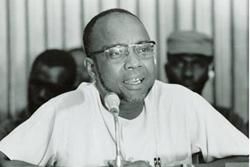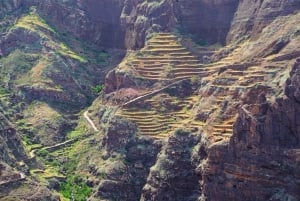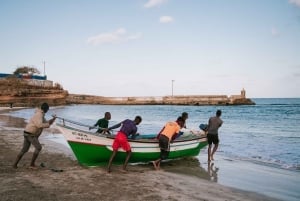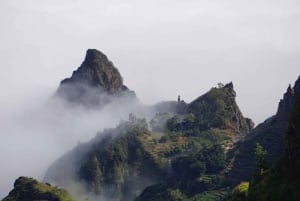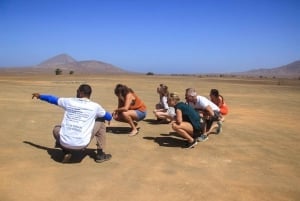Cape Verde Politics
Background
Cape Verde was originally a Portuguese colony, but it achieved emancipation in 1975. Since then, it has been one of Africa´s healthiest democracies.
The Constitution
Some of Cape Verde Constitution´s most salient prescriptions include freedom of opinion, religion and demonstration. It also establishes the form of government as a parliamentary representative democracy.
In the system set forth by the Constitution, the President is elected by the people and the Prime Minister, who is the head of government, is elected by the National Assembly. The democratically elected National Assembly exercises Legislative power and the Judiciary branch is an independent power.
To participate in Cape Verde´s democratic elections, one must be a legal citizen, but the constitution also includes citizens from lusophone countries in this category, giving them equal rights except for "access to functions of sovereignty organs, service in the armed forces or in the diplomatic career."
The constitution from 1975 underwent some important revisions in 1990, which brought about some substantial changes to Cape Verde politics, notably, the possibility of encompassing more than one political party.
After Independence
The independence of Cape Verde in 1975 was the work of the PAIGC (later PAICV), which was the only political party up until 1990. Since the founder of PAIGC Amilcar Cabral was murdered in 1973, a new candidate had to be chosen for the first democratic elections, and Aristides Maria Pereira was nominated.
Pereira, a long time anti-colonial activist from PAIGC, was elected and re-elected up until 1991, when a new party and a new candidate succeeded in ending his presidency. Since then, Cape Verde has had a multi-party system.
Political Parties
PAICV (Partido Africano da Independência de Cabo Verde) is the name adopted by the original PAIGC in 1981. The PAIGC actually dates back to 1956, and it functioned both in Guinea-Bissau and Cape Verde.
The PAICV is a member of the Socialist international, and its government has largely focused on resolving social problems and established a policy of non-alignment during the years of the Cold War, for example. The party describes itself as Africa-oriented, and it enjoys the most support in densely populated areas.
The MPD (Movimiento para a Democracia) was founded in 1990 and won the elections in 1991. It has a more neo-liberal orientation, favouring, free trade and open economic policies. Having ruled in Cape Verde for two terms so far, the MDP is credited with a successful decentralisation of Cape Verde´s government system through the creation of sixteen counties.
The PCD Partido da Convergênzia Democrática, split from the MDP in 1994, and it has typically earned under 5% of the votes, still not constituting a contestant in the quest for power. It was founded by Eurico Monteiro and Jorge Carlos Fonseca.
The UCID, União Caboverdiana Independente e Democrática, was founded in exile outside Cape Verde in 1975 and it upholds Christian Democratic principles.
The PSD (Partido Socialista Democrático) dates back to 1992 and the PTS (Partido do Trabalhoe da Solidariedade) to 1998.
So far, these smaller parties have only been able to aspire to seats in the National Assembly, and they are far from challenging the PAICV or the MPD.
Presidents
PAICV´s Aristides Maria Pereira, ruled from 1975 till 1991.
António Mascarenhas Monteiro from MPD ruled from 1991 till 2001.
PAICV came back to power with Pedro Verona Rodrigues Pires ruled from 2001 until 2011
Present and Future
The elections in August 2011 were won by MPD representative Jorge Carlos Fonseca who became the fourth president of Cape Verde.


